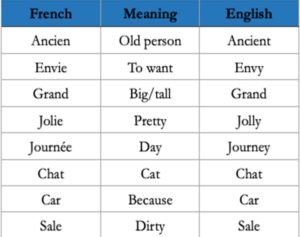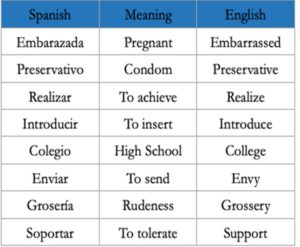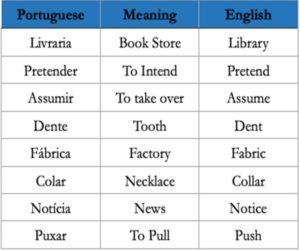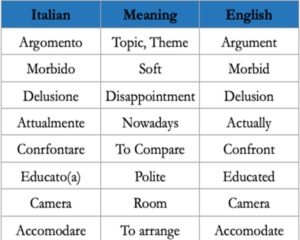When we speak another language is quite usual to “make up” words, or to use words that are similar in both languages. In Portuguese, the word pretender means to intend but many Portuguese speakers use pretend not knowing that it has a totally different meaning which would translate into fingir in Portuguese. In Spanish, embarazada, means pregnant and not embarrassed. This is what we call “false friends” and if we think about the name it was given, it kind of makes sense, doesn’t it? Because it seems to be something, but it’s just not. Oh wow, now it’s getting even worst to learn English, you might think.
Well, false friends are present in many pairs of languages. False friends occur because languages are not static. They are in constant movement and therefore, subject to changes, all the time. Sometimes, words even turn into a completely opposite meaning over time. There is a variety of languages that have the same origin, like Latin languages, or Germanic languages. And that is one of the factors that contribute to false friends’ development. Another factor is when we borrow words from other languages. English translators, in the 1500s, incorporated many foreign words in their language, especially from Latin, in order to increase their vocabulary. That’s why, we, Latin language speakers, can hear so many similar words in English. At the same time, the Portuguese had a great influence from Arabic. And more specifically, Brazilian Portuguese an influence from indigenous languages, and an even bigger influence from African languages, because of slavery.
Ok, enough of the linguistics class. But understanding these influences, allow us to understand why this phenomenon occurs. Great, how can we overcome another hiccup in the language learning process? Well, by acquiring vocabulary. For different people, it is a different process or even length of time. To learn a new word and get it sunk in, we need extensive exposure to it, and not only knowing the translation, but understand the meaning, and more importantly, how to use it in a sentence. This can be done by constantly exposing ourselves to the language. It is important to pay attention when you listen to the word, when watching a movie or when reading in the target language. The more you expose yourself to the language, by reading or listening, the more words you learn. You can pick a particular subject like science, marketing, law, etc. and you will learn new words related to these subjects. Newspapers, magazines, novels are great tools to learn new vocabulary too!
Also, you can check False Friends glossaries. Make lists of the ones you find most difficult and practice by using them in sentences. And again, do not rely on your translation apps, rather use a good dictionary and read the definitions to make sense of the word.
Check out a few examples:





